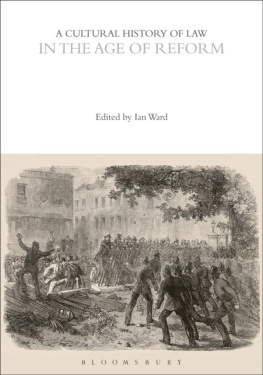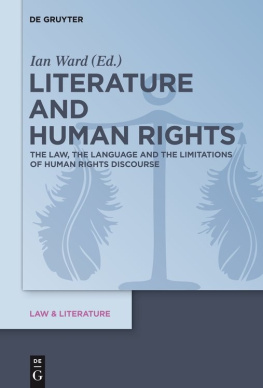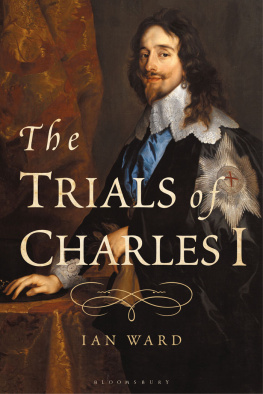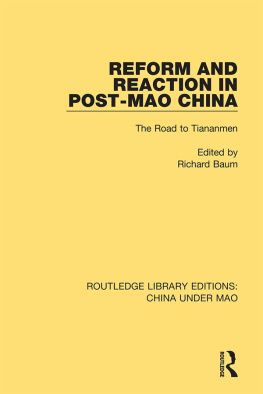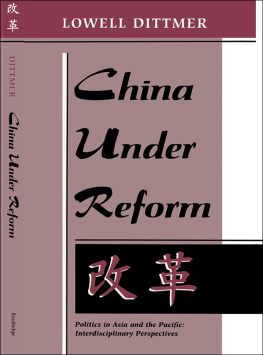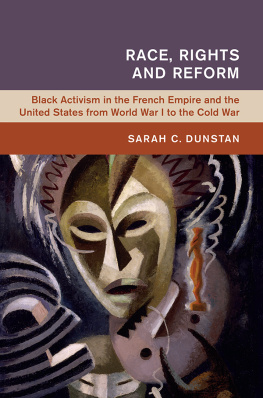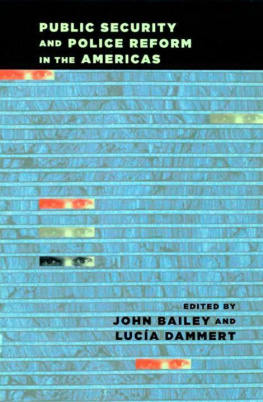A CULTURAL HISTORY OF LAW
VOLUME 5
A CULTURAL HISTORY OF LAW
IN THE AGE OF REFORM
Edited by Ian Ward

A Cultural History of Law
General Editor: Gary Watt
Volume 1
A Cultural History of Law in Antiquity
Edited by Julen Etxabe
Volume 2
A Cultural History of Law in the Middle Ages
Edited by Emanuele Conte and Laurent Mayali
Volume 3
A Cultural History of Law in the Early Modern Age
Edited by Peter Goodrich
Volume 4
A Cultural History of Law in the Age of Enlightenment
Edited by Rebecca Probert and John Snape
Volume 5
A Cultural History of Law in the Age of Reform
Edited by Ian Ward
Volume 6
A Cultural History of Law in the Modern Age
Edited by Richard K. Sherwin and Danielle Celermajer
INTRODUCTION
JUSTICE
CONSTITUTION
CODES
AGREEMENTS
ARGUMENTS
PROPERTY AND POSSESSION
WRONGS
LEGAL PROFESSION
Kevin Crosby is a Lecturer in Law at Newcastle University. His research mainly concerns the history of jury trial between the seventeenth and twenty-first centuries, and he has most recently completed a project on the first women trial jurors in England and Wales between 1920 and 1929.
Kieran Dolin is an Associate Professor in English and Cultural Studies at the University of Western Australia. He is the author of Fiction and the Law: Legal Discourse in Victorian and Modernist Literature (1999) and A Critical Introduction to Law and Literature (2007) and has recently edited a collection of essays on Law and Literature for the Cambridge Critical Concepts series.
Nancy E. Johnson is an Associate Dean of the College of Liberal Arts & Sciences and a Professor of English at the State University of New York at New Paltz, where she has taught eighteenth-century British literature and contemporary literary theory. She is the author of The English Jacobin Novel on Rights, Property and the Law: Critiquing the Contract (Palgrave, 2004); editor of Impassioned Jurisprudence: Law, Literature and Emotion, 17601848 (Bucknell University Press, 2015); scholarly editor of The Court Journals and Letters of Frances Burney, 1790June 1791, Vol. VI (Oxford University Press, forthcoming); and editor of Mary Wollstonecraft in Context (Cambridge University Press, forthcoming). She has also published articles on novels of the 1790s and various intersections of law and literature.
Linda Mulcahy is the Professor of Socio-Legal Studies at the University of Oxford. She has qualifications in law, sociology and architecture and her work has a strong interdisciplinary flavor. Her most recent research has focused on the architecture of courts and the use of images in legal scholarship.
Jan-Melissa Schramm worked as a lawyer before undertaking a PhD on the changing idea of evidence in the long nineteenth century. She is now University Reader in Literature and Law, and Deputy Director of the Centre for Research in the Arts, Social Sciences, and Humanities (CRASSH), at the University of Cambridge. She is the author of Testimony and Advocacy in Victorian Law, Literature, and Theology (Cambridge University Press, 2000), Atonement and Self-Sacrifice in Nineteenth-Century Narrative (Cambridge University Press, 2012), and Censorship and the Representation of the Sacred in Nineteenth-Century England (forthcoming, Oxford University Press, 2018). She has also co-edited two volumes of essays: Fictions of Knowledge: Fact, Evidence, Doubt (Macmillan, 2011), and Sacrifice and the Modern Literature of War (Oxford University Press, 2018).
John Snape is an Associate Professor of Law at the University of Warwick. His work on Gilbert and Sullivans Utopia, Limited combines his interest in nineteenth-century legal history with a love of the Savoy Operas that goes back to his teenage years.
Jane Tynan is Senior Lecturer in visual culture and design history at Central St Martins, University of the Arts, London. Her research concerns the distinctive images that mark transformations in law and order, military conflict, and insurgency. Publications include British Army Uniform and the First World War (Palgrave, 2013) and the forthcoming Understanding Uniform (Bloomsbury, 2019). She is series editor for Palgrave Studies in Fashion and the Body.
Ian Ward is Professor of Law at Newcastle University. He is the author of a number of books and essays in the areas of legal history and literary jurisprudence, including Law and Literature: Possibilities and Perspectives (Cambridge University Press, 1995), Law, Text, Terror (Cambridge University Press, 2009), Law and the Brontes, (Palgrave, 2012) and most recently Sex, Crime and Literature in Victorian England (Hart, 2014).
Gary Watt is a Professor of Law at the University of Warwick. He is co-founding editor of the journal Law and Humanities and General Editor of A Cultural History of Law (Bloomsbury). Since 2009, when he was named UK Law Teacher of the Year, he has regularly led rhetoric workshops for the Royal Shakespeare Company. His recent monographs have explored the rhetoric of Equity (Equity Stirring, Hart, 2009), Dress (Dress, Law and Naked Truth, Bloomsbury, 2013) and Shakespearean performance (Shakespeares Acts of Will, Bloomsbury Arden Shakespeare, 2016).
The six volumes in A Cultural History of Law present a panorama of laws cultural significance over the span of several centuries, especially as it relates to the place of law in the arts and humanities. Each volume focuses on a distinct time period from antiquity to modernity and in each volume a chapter is devoted to one of eight legally significant themes: Justice, Constitution, Codes, Agreements, Arguments, Property and Possession, Wrongs, and The Legal Profession. The collection does not seek to provide encyclopedic coverage, but rather to present cultural case studies that highlight how particular cultural arteficts express and explore the key legaland inevitably the key political and socialconcerns of their time. The authors have picked flowers from their field of expertisea play, a painting, a mosaic, a book, a filmwhich bring into close focus the cultural and legal flourishing of the time. The volume editors are internationally distinguished scholars with a passion and deep appreciation for the law and culture of their chosen period. Together with the experts that they have assembled to contribute chapters on the eight themes, they are reliable guides not merely to the facts about each period but to the feel of each period. Every volume has an ethos and a style that immerses the reader in the distinctive quality of its era. The series is indebted to the archivists concern to discover and catalog historical materials, but what sets it apart is its concern to show how the materials of history are materially meaningful. In this way, our retrospective of more than 2,000 years continues to have relevance for lawyers and for all culturally concerned citizens today.
Sometimes we find that artifacts have lost the cultural meanings that first produced them. Likewise, we sometimes we find that artifacts are culturally meaningful today in ways that they were not at the time of their creation. Take the example of Magna CartaThe Great Charter of King John of England sealed at Runnymede on the Thames in 1215. Today, in the United States in particular, Magna Carta has been hoisted to totemic heights in the cultural imagination. It might therefore seem strange to us that William Shakespeares play
Next page
